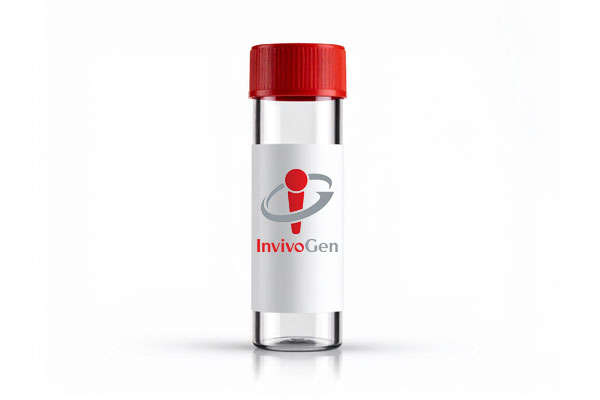Anti-hTSLP-hIgG2
-
Cat.code:
htslp-mab2
- Documents
ABOUT
Anti-human TSLP - Tezepelumab biosimilar - CAS #1572943-04-4
Anti-hTSLP-hIgG2 is a biosimilar antibody of Tezepelumab, a human thymic stromal lymphopoietin (TSLP) antibody that blocks TSLP signaling. This monoclonal antibody (mAb) is FDA-approved for the treatment of severe asthma.
Anti-hTSLP-hIgG2 comprises the variable region of Tezepelumab and the IgG2 constant region of Tezepelumab, mediating low-effector functions.
This antibody can be used together with HEK-Blue™ TSLP cells for screening and neutralization assays to block TSLP signaling induced by recombinant human TSLP (see figure).
Key features
- Each lot is functionally tested and validated.
- The complete sequence of the antibody construct has been verified.
- The absence of endotoxins is determined by the
All products are for internal research use only, and not for human or veterinary use.
SPECIFICATIONS
Specifications
Human TSLP
Human
Sodium phosphate buffer with glycine, saccharose, and stabilizing agents
Negative (tested using EndotoxDetect™ assay)
Neutralization assay
Each lot is functionally tested and validated.
CONTENTS
Contents
-
Product:Anti-hTSLP-hIgG2
-
Cat code:htslp-mab2
-
Quantity:100 µg
Shipping & Storage
- Shipping method: Room temperature
- -20°C
- Avoid repeated freeze-thaw cycles
Storage:
Caution:
Details
TSLP background
Thymic stromal lymphopoietin (TSLP) is an interleukin-7 (IL-7)-like cytokine with multiple functions, including cell proliferation and survival. TSLP binds a heterodimeric transmembrane receptor comprising the shared IL-7 receptor alpha-chain (IL-7Rα, CD127) and the TLSP receptor chain (TSLPR, CRLF2), a γc-like subunit. It signals through tyrosine kinases of the Janus family (JAK1 and JAK2) and signal transducer and transcription activators (STATs), notably STAT5 [1]. TSLP is best known as a critical mediator of type 2 immune responses and a promoter of Th2 cell-mediated diseases (e.g. asthma) [1,2].
Tezepelumab background
Tezepelumab, a fully human anti-hTSLP-hIgG2 mAb, was designed to target the human thymic stromal lymphopoietin (TSLP). This antibody specifically interacts with TSLP, thus preventing its binding to the TSLP heterodimeric receptor (comprising the IL-7Rα and TSLPR subunits) [3]. The upstream positioning of TSLP in the inflammation cascade in major immune-mediated inflammation diseases, such as asthma, makes it an attractive pharmacological target. Tezepelumab was approved by the FDA in 2021 to treat patients with severe asthma [4, 5]. This new drug stands out as it improves clinical outcomes in all asthma endotypes (e.g. eosinophilic, Th2 allergic, neutrophilic). Importantly, Tezepelumab may modulate airway inflammation that is not controlled with biologics blocking specific downstream elements of the inflammatory cascade (e.g. anti-IL-4/13 receptor antibody Dupilumab, inhaled corticosteroids) [4].
References:
1. Ebina-Shibuya R. & Leonard WJ., 2023. Role of thymic stromal lymphopoietin in allergy and beyond. Nat Rev Immunol, 23(1):24-37.
2. Schmitt P. et al., 2024. TL1A is an epithelial alarmin that cooperates with IL-33 for initiation of allergic airway inflammation. J Exp Med. 221(6) e20231236.
3. Verstraete K, et al., 2017. Structure and antagonism of the receptor complex mediated by human TSLP in allergy and asthma. Nat communications. 8(1):14937.
4. Panettieri, R., Jr., et al., 2024. Tezepelumab for Severe Asthma: One Drug Targeting Multiple Disease Pathways and Patient Types. J Asthma Allergy. 17: p. 219-236.
5. Menzies-Gow, A., M.E. Wechsler, and C.E. Brightling, 2020. Unmet need in severe, uncontrolled asthma: can anti-TSLP therapy with tezepelumab provide a valuable new treatment option? Respir Res. 21(1): p. 268.
DOCUMENTS
Documents
Technical Data Sheet
Validation Data Sheet
Safety Data Sheet
Certificate of analysis
Need a CoA ?




